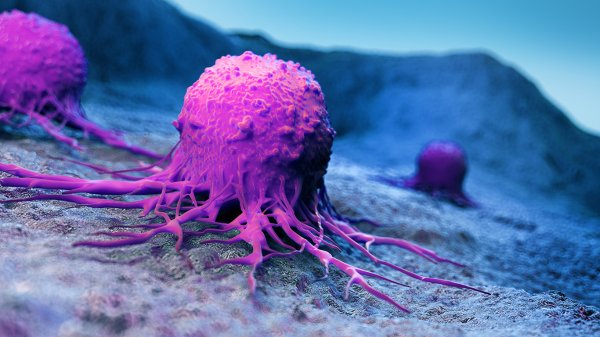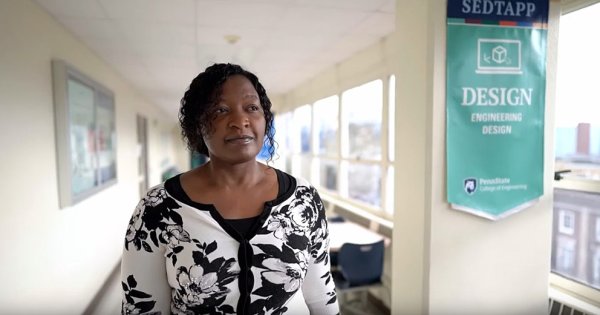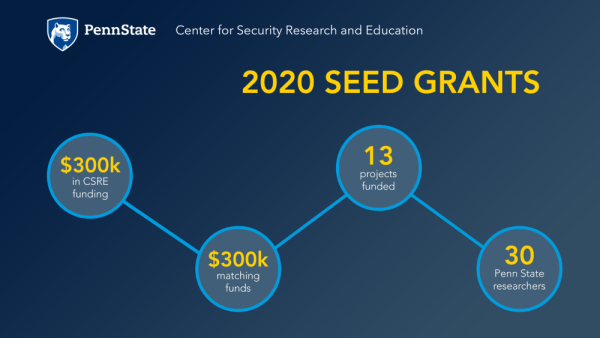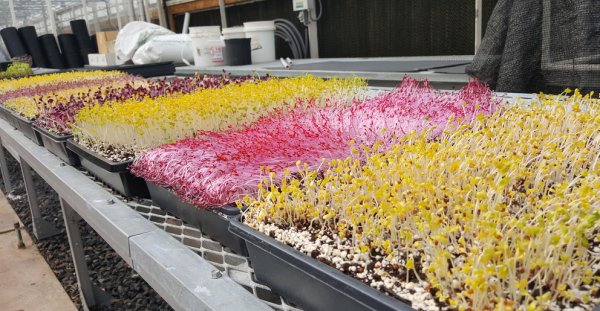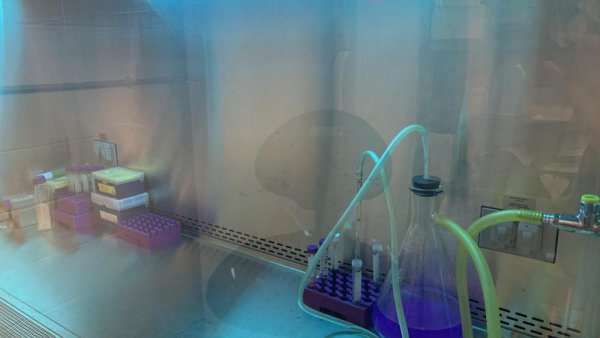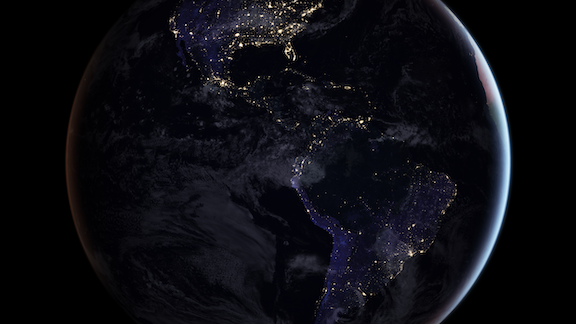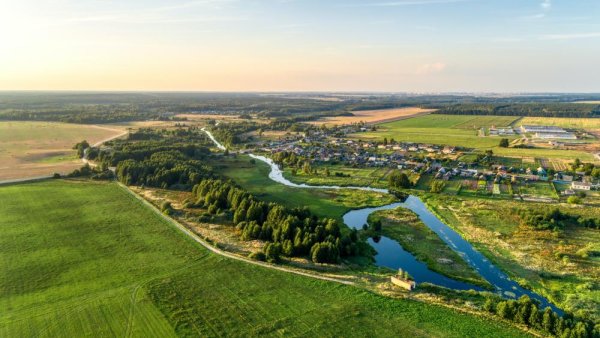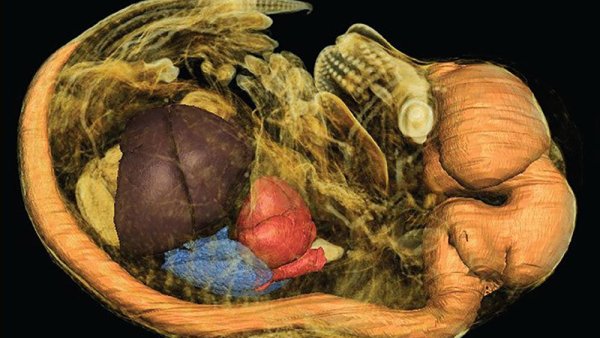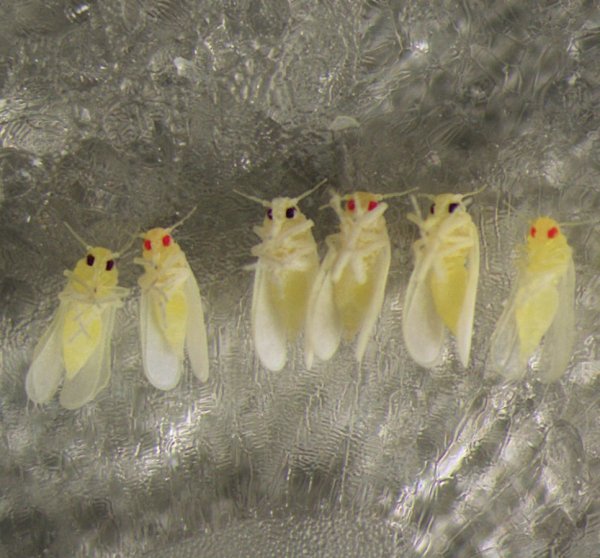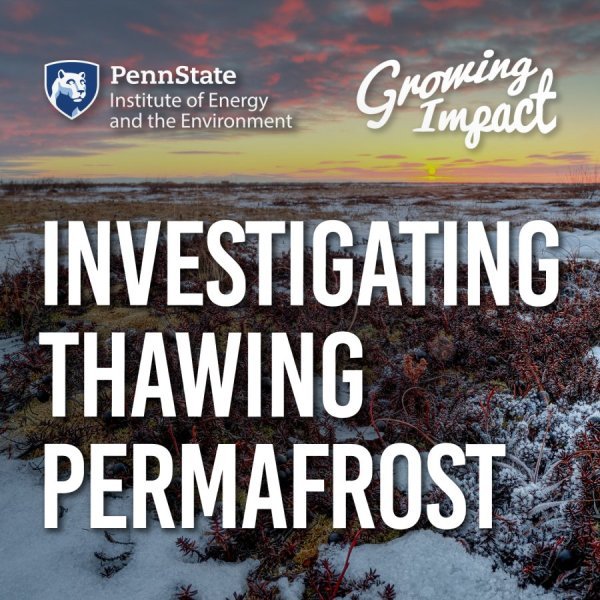Custom nanoparticle regresses tumors when exposed to light
| news.psu.edu
A team of Penn State researchers is collaborating on a potential new method to treat cancer by delivering a unique nanoparticle to a localized cancerous area in mice and activating the treatment through light exposure.
How Penn State is 'building' a healthier future
| news.psu.edu
For more than two decades, Esther Obonyo, associate professor of engineering design and architectural engineering and director of the Global Building Network, has served as a global expert on buildings.
'Land and Water Revisited' to livestream for premiere
| psu.edu
"Land and Water Revisited," a look back at a 1962 movie on the ecological impact of people in the Teotihuacan Valley outside of Mexico City, will live stream at 7 p.m. on July 24 on YouTube Live from the State Theatre. The film will be introduced by the producers and followed by a livestreamed, 45-minute question-and-answer session with collaborators and families from the original film.
Center for Security Research and Education announces seed grant awardees
| psu.edu
The Center for Security Research and Education (CSRE) has selected 13 interdisciplinary projects through its spring 2020 seed grant program. CSRE is providing a total of $300,000 in funding for the projects, with an additional $300,000 in matching and supplemental funding from other colleges, departments, and institutes.
Penn State and University of Auckland announce 2020 joint collaboration projects
| psu.edu
In late 2019, Penn State and the University of Auckland launched the Joint Collaboration Development Program, a jointly financed seed-fund program with the aim to foster collaborative research and educational projects. The Office of Global Programs has announced that eight projects have been funded and will officially commence in June.
Research team to study food resilience in the face of catastrophic global events
| news.psu.edu
In the midst of the COVID-19 pandemic, we have all become aware of how a global crisis can affect our access to food. But imagine the food security impacts of an even worse scenario — an all-out nuclear war, a large asteroid strike, or a supervolcano eruption.
Penn State promotions in academic rank, effective July 1, 2020
| psu.edu
The following is a list of academic promotions for tenured and tenure-line faculty members at Penn State, effective July 1.
Battling disease with ultraviolet light
| psu.edu
Bill Bahnfleth, co-principal investigator (PI) and professor of architectural engineering, is joining co-PI Suresh Kuchipudi, clinical professor of veterinary and biomedical sciences, to study the ability of optical radiation to disinfect surfaces and reduce transmission of viruses.
Geographers bring expertise on geospatial data, modeling to COVID-19 research
| psu.edu
Penn State geographers are taking part in a variety of projects in response to the COVID-19 pandemic.
New institute to help address complex food-energy-water-land challenges
| psu.edu
The seed for Penn State’s Institute for Sustainable Agricultural, Food, and Environmental Science was planted well before the COVID-19 outbreak. The concept had been growing in the College of Agricultural Sciences for about two years when the pandemic emerged.
Penn State lab develops new procedures to improve high-quality scanning
| psu.edu
CQI developed new processes that resulted in a high-resolution scan 3D segmented rendering of a contrast-enhanced fetal mouse, which was chosen as the cover image for the journal Developmental Dynamics.
Gene-editing protocol for whitefly pest opens door to control
| news.psu.edu
Whiteflies are among the most important agricultural pests in the world, yet they have been difficult to genetically manipulate and control, in part, because of their small size. An international team of researchers has overcome this roadblock by developing a CRISPR/Cas9 gene-editing protocol that could lead to novel control methods for this devastating pest.

